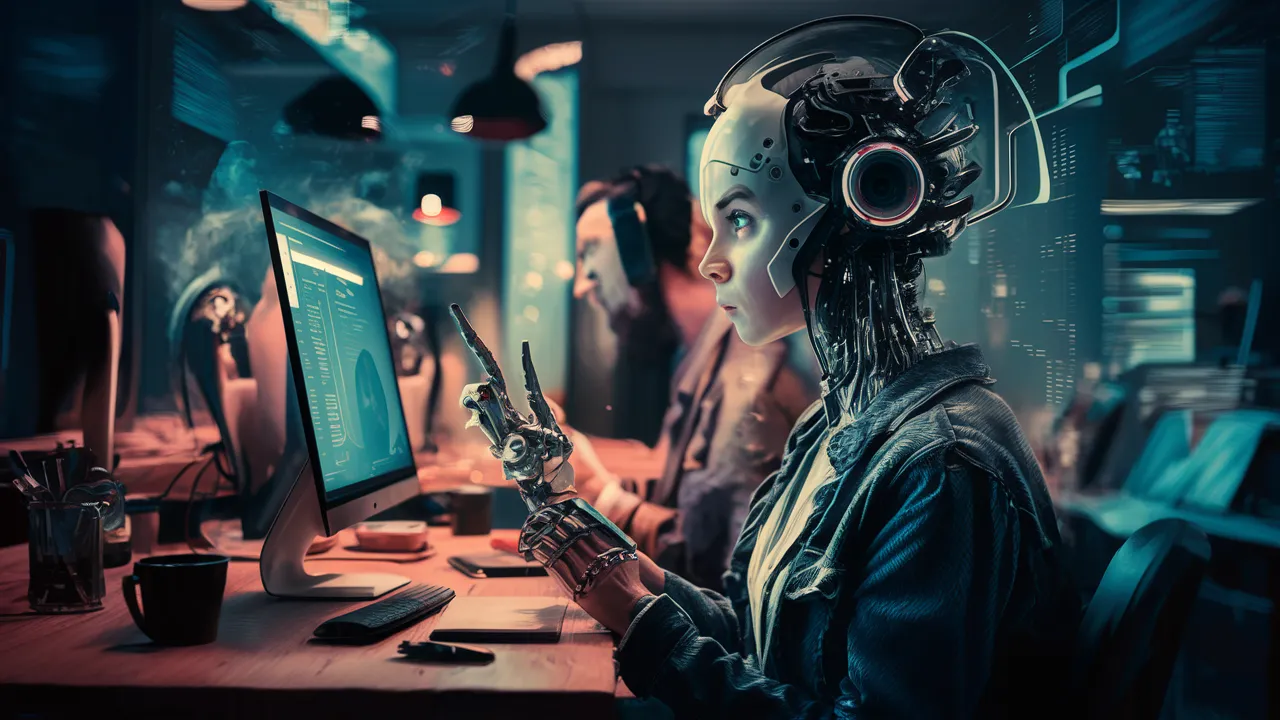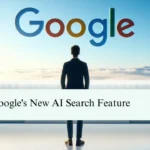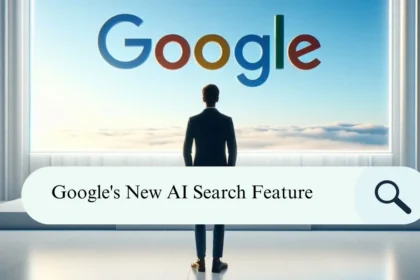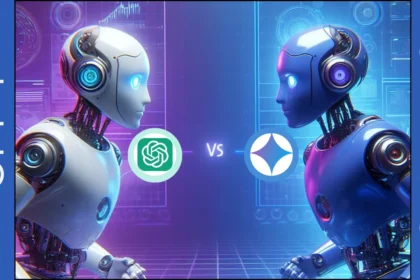In the early 1960s, a time when computers were just coming into the limelight, scientists and activists wrote a letter to the President of the US of the time, Lyndon B. Johnson. This was an issue that concerned them. They feared that the introduction of new technology would become the basis of a social inequality gap which could result in massive job losses among the masses and some people facing a bad situation in life.In this article I will discuss the AI and Future Employment.
That was not the first time when a scare broke out related to issues after technological advances. It was in the 1930s in California that a mayor addressed the President with a letter that the robots would bring about the end of production and our life would also come to an end.
But, these fears were not all that real. The joblessness forecasts resulting from technology usage included wrong predictions in the past. Yet, a senior official of the International Monetary Fund (IMF) at a recent meeting of world leaders reported that approximately 40% of the world’s jobs can be modified by AI and Future Employment. In labor-intensive countries, AI replaces 30% of jobs, increasing to 60% in advanced economies, where around 50% of jobs are negatively affected by these technological changes. These jobs are likely to be poorly paid, and people might also face problems acquiring new jobs or some jobs may even disappear altogether.
Yet, the last couple of centuries had many ups and downs with a noticeable increase in the number of employed people, even taking into account the nonstop technology-driven changes. For instance, the expansion in industrial production led to the displacement of people from the field, but at the same time, others got employed in the factories as the technological advancement by machines replaced many farm jobs.AI and Future Employment is a topic that echoes this historical pattern, as advancements in AI technology are now replacing certain jobs while creating new opportunities in other sectors. So, those kinds of jobs have been replaced by machines, after some time, and this has been mainly the reason behind the increase in service-related jobs.
Nevertheless, it might be the first time when things differ from those that were done based on previous technologies because AI is not the same as the past. What it can do, though, is it will put more people out of a job than it provides. Though niche work types will pop up here and there, across nearly all the countries there will be a huge shift in demand for skill sets.
Trying to imagine the future of work

Now work yourself out as a farm worker at that time. Most of them could only describe how it feels to be damaged anyway. Would it be possible to picture the modern world where only one out of every 5 working people would produce food? AI and Future Employment trends show significant shifts in job markets. Did you know about the various jobs people have through the days or is the future, with AI and Future Employment trends, going to teach us more? or do we have a lot to learn from the past? If 20 years ago they asked the experts they probably wouldn’t have imagined that we would have so many personal trainers and that the market for healthy lifestyle apps would grow this fast. AI and Future Employment predictions might similarly surprise us in the next two decades.
To start with, let us just consider if the things we were in want of could be accessible in today’s world. Should we want a higher standard of food, service, or better products? The question now follows us, whether we want to be healthier. We can do that if required and even more new jobs can be born to cover the new spheres of work that have emerged.
Besides the first point, society with its changes and new ways of life brings along inventions, and therefore new tasks and needs might emerge. Similarly to smartphones that generated new opportunities, other rovers might be followed by many new jobs as well.
The fourth is if many more people start purchasing goods/ services it may be that the number of new jobs increases as well. But even if the technology in the future fires some people, it can always also help workers do their jobs better, which might result in commodities becoming cheaper and demand for them increasing.
Lastly, we should consider what the governments can do to maintain a careful balance between enough occupations and trending changes in the job market. Frequent job changes must be possible because the world is continuously moving forward and this may mean that people have to change their jobs more often than before.
The impact of artificial intelligence on the future of work

Organizing work activity in times of pandemics, when only automated machines could prevent COVID-19 infections and are cost-effective to use, companies widely turn to technological innovation. Hence, machines get to perform functions that humans previously worked on.
For instance, robots might replace workers in manufacturing through 2025. It is indicated in a report from economists from MIT and Boston University.
- Not only jobs can be taken by robots, say cashiers and customer servicing that are often spread among the members of black and Latin American communities. This job could be impacting up to 73 million in the US by 2030. You should also consider this factor.
- However, the ongoing fear of machines displacing jobs does not matter, the overall benefit received from such technologies, such as the steam engine or the internet, is what is most important.
- The economic blow left many businesses seeking alternative ways to conduct themselves, which saw an increase in robots being used to conduct daily business. They were working at jobs like cleaning planes and flights take-off screening at airports, as parts of airport services.
- Hospitals and universities made robots to deliver salads and enhance or have hospital beds.
- Some companies were replacing phone center representatives with chats or AI.
- Sharing this cleaning activity by robots among the guests, some tools such as towels were delivered and they were welcomed with disinfected keys.
- Machines can be used for the same part in quicker time for tasks such as bricklaying and harvesting crops, but not every job is going all away.
Investing in jobs and new technology
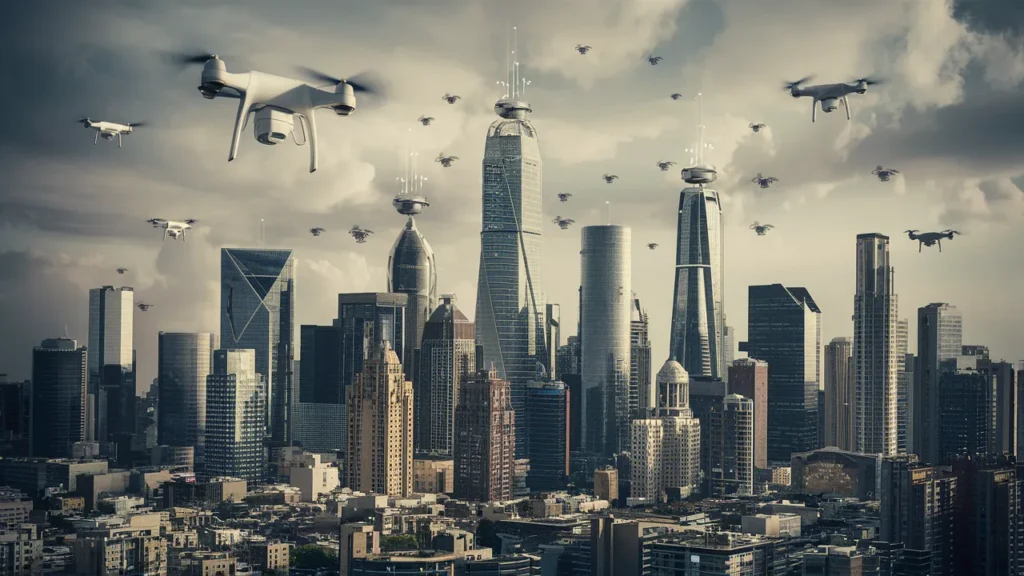
Small and large businesses alike are creating new jobs to man the countries around the world and all the industries. Therefore, it’s a critical need for traders and investors to be given total licenses to start and grow businesses with the advent of new technology ventures.
If employers can adjust to various work styles then this implies that the market of flexible jobs is flexible and anyone can make a job switch from one field of work to the other. The more flexible countries that have fewer restrictions and more rules could be the ones that get more individuals without work. Yet countries, which have open and liberal markets will continue to have new jobs from those which replaced the old ones. Because AI and Future employment is not one of the things people get used to easily and it can even be that an entire city will struggle with it.
Governments will be of great value by organizing training programs if people lose their jobs because of technological progress, giving money to those who are out of employment, and creating safety nets in the case of an economic crisis.
Although the factories were commencing, the governments allocated big funds to teaching the population to print, write, and do math for those jobs. They also have constructed new roads and ports in addition to this. Today is an era where we have to invest both in training everyone with digital skills and guaranteeing that all workplaces have broadband connections so traditionally deprived people are given the same new job opportunities as other people.
According to this, as we consider the kind of jobs that may be available in the future, we need to keep in mind how technological innovation is going to alter our work. When we pay attention to the opportunity for new employment from technology we can ensure that these people will all embrace it.
AI in Business
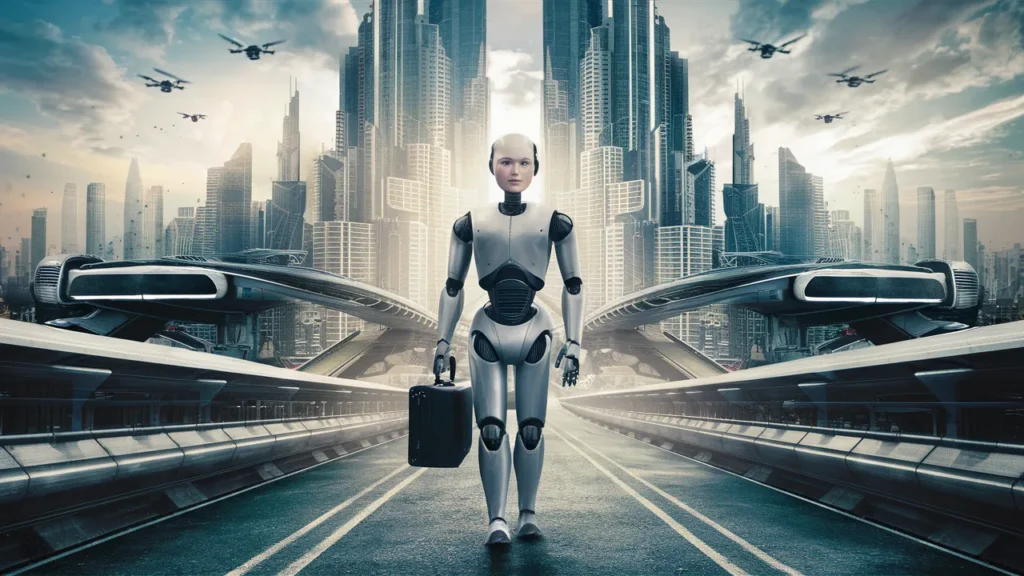
More than half of the companies that are already employing smart computer technology specifically say it improved their work methods operation.
Some industries that’ll feel AI’s impact a lot are:
Finance
Cash tellers in banking also diminished in number due to cash machines (ATMs). Banks made cash more accessible, a trend that pushed more people to come to banks for their banking solutions. Banks increased staff numbers and had tellers relocate to different areas.
Hospitality and Tourism
In Tokyo, machines even act as waiters in a café. But they’re computer-generated, but controlled by people who live off disabilities or are single parents, they need to stay home. Therefore, this reduces the stigma of homelessness and reintegrates those people into the workforce and society.
Medical
AI can get doctors ready for potential health problems from the massive variety of data. Sometimes, computers are even faster and more skilled than doctors in diagnosis.
Automotive
Cars that drive by themselves are frequently encountered. AI is not only the car’s production process but the way cars will be made.
Cybersecurity
AI works out and prevents attacks on the web, such as breaking into personal computers or the web. Providing safety equivalence is the most important benefit.
Job Searching
Technology in today’s world can tackle hiring. They can also speed up the process of scanning the CVs of the applicants, which relieves time for recruiters. Understanding AI can offer the right job in the future.
Is AI the Future of Work?
A lot of fear has been bred among people due to media portrayals and sci-fi movies, which usually assume the loss of human jobs is the inevitable result of technological developments. On one hand, AI innovation is evident in the mechanization process; though the workers won’t be completely exchanged, human workers are still in the game. A report presenting a more optimistic view – like MIT Task Force’s “Artificial Intelligence And The Future Of Work” – proposes that AI will be powering innovations and new job opportunities, not vice versa.
Although AI carries many limitations, it does not have the power to reproduce human intelligence and it has the potential to get biased data; this aside it can aid human skills resulting in an increase in the workforce with investments in training and upskilling. Not only several leading businesses are starting to utilize artificial intelligence but also it’s greater strongside is the human job.
Conclusion
The robotic waiters may become good helpers when the customers need to know if the service is clean and safe. This could then mean that this leads to many more people working from home, which is a good thing.
However, it is imperative to have a well-thought-out plan for tomorrow’s role of people and machines that will intertwine more and more, keep marginally efficient things out of production, and train workers for new professions. If we are successful, companies can expand these kinds of activities and they will be successful too.
Having a basic understanding of computer technology can be a must nowadays. Learning about AI and Future Employment is a big deal – you should strive for it. Whether you are a clerk or a doctor, it is important to know the AI because many jobs will become its victims and you have to be safe having a plan B in case you become unemployed. Hence, try to understand at least unique concepts of AI in various sectors.
FAQs
1. Will AI replace human jobs in the future?
He/She describes “Examples of the roles are data entry, basic customer service (CS) positions, and accounting.” A survey shows that even in assembly line jobs, robots work faster than humans, they don’t need bathroom or elimination breaks, and they have a stronger concentration. Moreover, higher-skilled jobs with “thinking” tasks appear to be the least safe from being replaced to some degree.
2. What is the future of artificial intelligence in future?
What does it envision about AI’s future? AI will provide a great function to areas like healthcare, manufacturing, and customer service with the most improved experiences for the employees as well as the customers. Nonetheless, it does have a few disadvantages such as the impact on job security, data privacy, and regulations.
3. Will AI replace human jobs in the future?
As reported by the World Economic Forum, 85 million jobs will have been disrupted by AI by the year 2025 most probably. The worrying factor is that previously published by the organization’s “The Future of Jobs Report 2020” states that within the next few years, technology will additionally add 97 million jobs. Artificial Intelligence (AI) elevates human productivity and encourages the resilience of human intelligence.
4. How AI will change the world?
It has been found out that about half the resumed jobs may secure an edge through AI integrations that could be a productivity booster. The task will turn rosy for half of the community while the other half will undergo AI applications designed to replace main jobs. They won’t need much labor, and as a result, their wages may decrease and the new jobs will be offered less frequently. Even the most rigorous position will be doomed in that case and something will be gone.

